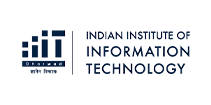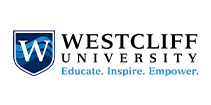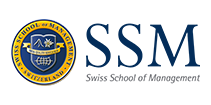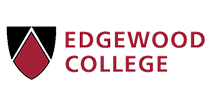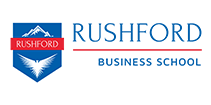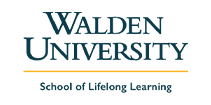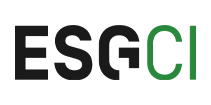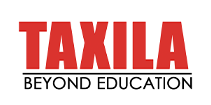From Classroom to Career: Best Professional Courses After 12th
After the completion of the 12th grade students must carefully decide which career direction they will pursue since this choice determines their professional path. Professional courses beyond 12th standard deliver specialized competencies together with practical education and authenticate industry contact. The courses focus on creating a solid base in students' specialized fields as they prepare them for employment through practical learning methods. The increasing industry focus on skill education makes professional courses the top choice for students who want specialized knowledge and industry endorsements combined with improved professional opportunities in a competitive market. Graduates of these courses can start their careers right after graduation thanks to their ability to link theoretical knowledge to industrial practices.The professional and career-oriented courses deliver both theoretical knowledge and hands-on problem-solving capabilities to students as part of their educational structure. The majority of these programs include industrial internships and workshops together with actual projects for students to foster critical thinking ability and adaptability. After finishing 12th science, commerce or arts students can take professional courses that give them an advantage over other candidates to stay competitive in the constantly changing professional world. Students who select appropriate courses acquire clarity along with career confidence about their professional long-term routes.
Understanding Career-Oriented Courses
Professional educational programs provide students with specialized skills that transform them into capable job candidates immediately after completing their studies. The educational programs deliver applied skills through practical training while integrating real-life solutions and bypass theoretic information. These education programs align their content with industry requirements because they intend to make students prepared for workforce competition. Through their programs students gain access to internships, apprenticeships and opportunities for industry cooperation, delivering essential practical experience. Professional courses from these educational institutions issue certifications which gain easy acceptance from employers and advantage graduates with better employment chances. This curriculum exists in three domains, including technical fields, management sectors and creative industries and connects academic studies with practical job needs. Enrolling in such courses ensures a structured pathway to professional success and long-term career stability.Importance of Choosing the Right Career-Oriented Course

- Aligns with Interests and Skills: Students achieve maximum satisfaction when they choose courses which correspond to their personal interests along with their skills because it enhances their motivation. Students succeed academically and professionally when they select a career-oriented course which matches their abilities together with their areas of interest. A suitable course choice enables people to find fulfillment in their work resulting in reduced stress and enhanced productivity levels. Students who pursue their field of study through professionally tailored courses are able to generate innovative ideas which support the development of their selected industry.
- Enhances Employability: The employment market values graduates who receive education designed for industry standards because they develop skills which lead to immediate job opportunities. Business organizations choose applicants who demonstrate both real-world skills and real-world experience alongside abstract theory knowledge. Professional courses after 12th deliver high salaries because they offer specialized training as well as internships and certifications which enhance student employability. Three sectors especially IT along with healthcare and management require highly skilled professionals and provide numerous job openings for them.
- Ensures Financial Stability: Selected professional courses in India deliver jobs with higher compensation which creates strong financial stability for students. Medical, engineering, finance and business management careers usually provide generous salary packages with the possibility of career advancement. Students who benefit from solid wages in their chosen profession can overcome education debts and arrive at better standards before dedicating resources to house purchase and business development initiatives.
- Opens Global Opportunities: Multiple professional programs from 12th commerce and science enable students to obtain international career opportunities that lead to overseas employment. International workers can find employment opportunities worldwide through global markets thanks to high demand for sectors like information technology, finance and healthcare together with hospitality services. Students who take some programs can benefit from exchange opportunities as well as overseas internships and global certification programs which enhance their potential to work for multinational enterprises and in international countries.
- Prevents Career Dissatisfaction: Quality research enables students to select the right career path which reduces job dissatisfaction and prevents them from changing jobs and expending more time and money on education. Students who select professional careers without adequate research and guidance usually discover job disapproval which requires either multiple work changes or extended academic pursuit. Students who choose professional courses following 12th commerce whether math-based or not will prevent delays toward achieving stable careers as well as professional growth opportunities.
- Provides Hands-on Experience: Students experience hands-on learning through educational options that include external internship programs and business-oriented projects before seeking employment. Through practical aspects of their education students learn to build self-assurance along with capability to tackle difficulties and become flexible. Students who work on business-related projects in professional settings gain practical industry experience that teaches them about real-world challenges, office ethics and professional standards which simplifies their transition from educational life to their career.
- Future-Proofing Careers: Students who choose courses from thriving industries and emerging technologies create job security because their careers become resistant to future changes. The sectors of artificial intelligence with cybersecurity and digital marketing and renewable energy keep developing because they need experienced workers. Students who choose professional courses following their completion of 12th computer science or PCB education stay current with industry developments and technological progress of their field.
Categories of Career-Focused Programs

- Medical and Healthcare: MBBS, BDS and Nursing together with other health science specializations form a group of medical and healthcare courses that create career paths in medical practice. Through their studies students gain complete medical education and hands-on training combined with hospital experience. Doctor, nurse, hospital administrator and medical researcher comprise job opportunities available for graduates from these medical programs. Healthcare professional positions keep increasing year by year which establishes this field as stable and financially rewarding for students.

- Engineering and Technology: The Engineering and Technology category includes both B.E and B.Tech programs which teach students through multiple engineering branches including mechanical engineering followed by electrical, civil, software development, artificial intelligence and robotics technology. The technical information alongside problem-solving abilities are primary features offered by engineering degree programs. New graduates can pursue a career path in construction together with IT and manufacturing and research and development fields that strongly emphasize innovation.

- Management and Business: Business-oriented programs such as BBA and BBM provide students with essential competencies of leadership together with financial expertise and management skills to excel in corporate or entrepreneurial fields. Undergraduate curriculum includes marketing alongside finance, human resources and strategic management to instruct students for business adaptability. Globalization along with digitalization creates diverse opportunities for management professionals who want to work in multinational firms and startups.

- Arts and Humanities: The fields of Arts and Humanities teach students through literature, mass communication, social sciences, psychology and fine arts to develop their creative capacity and analytical capabilities. Students who graduate from these programs can pursue opportunities in educational facilities and public relations fields as well as social work organizations and media and journalism positions. The areas of study allow novel thinking alongside creative expression which generates new prospects for creating content and working in digital media and cultural research sectors.

- Commerce and Finance: The series of programs including B.Com and CA alongside CS and CFA teaches subjects about accounting, taxation, financial management and investment analysis. The curriculum provides students knowledge about financial laws together with business rules and economic governance structures. Students who excel in analysis and numbers will find excellent career opportunities in banking together with auditing and investment banking and financial consultancy because of this stream's capabilities.

- Law and Governance: – Law degrees such as LLB train students in legal practices, judiciary roles, and corporate law. The educational program consists of three main subjects which are constitutional law along with criminal law and civil litigation. New lawyers find employment opportunities along with positions as legal advisors and judges and as corporate consultants. Being a lawyer provides social significance together with both monetary security and professional respect which make it an attractive career choice.

- Creative and Media: – The Creative and Media stream contains professional training for journalism together with film-making animation and digital marketing courses. The training enables students to build their abilities for branding and editing combined with storytelling skills. Moreover the increase of digital platforms and entertainment industries created new professional possibilities for advertising and content creation and multimedia production.

- Hospitality and Tourism: – Students who take hotel management and travel tourism classes are ready to work in the hospitality, aviation and event planning industries. The educational program features essential areas such as customer service together with business operations knowledge and worldwide travel proficiency. Luxury hotels, airlines, travel agencies along with event management firms offer professional positions for graduates.

- IT and Computer Applications: – Educational programs in software development along with cybersecurity leave students with important technical competencies and additionally teach cloud computing and data science. Students who take these courses will access employment opportunities throughout the technology sector working for software companies or fintech entities and security organizations. The growing digital transformation requires continuous advancement of technical talent supply.

- Vocational and Skill-based Courses: – The curriculum within short-term education and diploma training emphasizes hands-on education through subjects such as plumbing, welding, automotive maintenance and beauty services. The programs educate students for skilled trade employment positions which open doors for local and international job markets. The government supports skill development through programs which allow vocational training to establish both economic freedom and business ownership possibilities.
Leading Career-Focused Courses for Different Streams
Science Stream
| Course Name | Description | Duration |
|---|---|---|
| MBBS | Medical degree required to become a doctor, covering theoretical and clinical training. | 5.5 years |
| BDS | Dental degree specialising in oral, health, surgery and prosthodontics | 5 years |
| B.Tech | Engineering degree in multiple disciplines like Computer Science and Mechanical | 4 years |
| B.Sc. Nursing | Focuses on patient care, medical assistance and hospital management | 4 years |
| B. Pharm | Deals with pharmaceuticals sciences, drug development and healthcare | 4 years |
| B.Sc. Agriculture | Specialises in farming techniques, agribusiness, and soil sciences | 4 years |
| B.Sc. Biotechnology | Combines biology and Technology for medical and industrial applications | 3 years |
| B.Sc. Microbiology | Studies microorganisms and their applications in healthcare and industries | 3 years |
| BPT | Bachelor of Physiotherapy focuses on physical rehabilitation and therapy | 4.5 years |
| B.Sc. Forensic Science | Applies scientific techniques in crime investigations and law enforcement | 3 years |
Commerce Stream
| Course Name | Description | Duration |
|---|---|---|
| B.Com | Covers finance, taxation, business law, and accounting | 3 years |
| BBA | Business management with specializations in marketing, HR, and finance. | 3 years |
| CA | Chartered Accountancy for auditing, taxation, and financial management | 3 years |
| CS | Company Secretary course specializing in corporate law and governance | 3 years |
| BHM | Hotel management and hospitality industry-focused course. | 3 years |
| BAF | Specialization in Accounting and Finance for banking careers | 3 years |
| BMS | Management Studies with a focus on business operations. | 3 years |
| BBI | Banking and Insurance program covering financial policies. | 3 years |
| BFM | Focuses on financial markets, stock trading, and investments. | 3 years |
| B.Voc Finance | Vocational degree with practical financial applications | 3 years |
Arts/Humanities Stream
| Course Name | Description | Duration |
|---|---|---|
| BA Psychology | Studies human behavior, cognitive processes, and mental health. | 3 years |
| BA Journalism | Focuses on media, news reporting, and mass communication. | 3 years |
| BA Political Science | Examines political systems, governance, and public policies | Varies |
| BA Sociology | Studies social behavior, institutions, and cultural dynamics. | Varies |
| BA History | Analyzes past events, civilizations, and their impacts on the present. | 3 years |
| BA English | Covers literature, linguistics, and critical writing skills. | 3 years |
| BA Fine Arts | Develops skills in painting, sculpture, and other artistic expressions. | 3 years |
| Bachelor of Social Work (BSW) | Prepares students for careers in social welfare and community service. | 3 years |
| BA Tourism and Travel Management | Focuses on hospitality, travel industry, and tourism management. | 3 years |
| BA Performing Arts | Trains students in theatre, music, and dance for performing careers. | 3 years |
Key Considerations for Choosing the Right Professional Course
Professional success needs proper selection of the right course after completing 12th grade. The following guidelines combined with essential factors will assist students in making their choice.
1. Self-Assessment and Career Interests
- All students must review their career ambitions and personal capabilities as well as their potential areas of interest before selecting their academic courses.
- One understands how to make suitable choices through self-assessment of their natural inclinations and select either creative paths or analytical or technical career options.
- Career counseling tests along with aptitude assessments help students discover their natural abilities for matching them with suitable career paths.
- Analyzing subjects they enjoy in school can also provide insights into potential career paths.
2. Industry Demand and Future Job Prospects
- Research conducted for professional fields enables students to select careers which have promising job markets.
- After completing their secondary level science, commerce or Arts education students must choose professional courses which match the expanding fields of medical services, finance and digital marketing and information technology.
- Students who review industrial data alongside employment forecasts and salary reports can make decisions based on real evidence.
- The stability of the chosen field for long-term development enables a prevention of career stagnation.
3. Course Curriculum and Learning Outcomes
- Students should verify whether the course has a balance between theoretical knowledge and hands-on exposure.
- Most career-focused courses after 12th provide internships, hands-on training, and live projects, making them more employable.
- Examining the course content ensures that it is in sync with the career goals of students.
- Courses with certifications or specializations in emerging technologies and business practices are desirable.
4. Course Duration and Financial Investment
- Certain professional courses after 12th extend for 3 years, whereas others (such as MBBS or CA) take 4-6 years of dedication.
- Students must analyze the time and financial commitment for a course.
- Verifying the availability of scholarships, student loans, and financial aid schemes can alleviate the burden.
- A properly prepared financial plan guarantees effortless course completion without undue stress.
5. Availability of Certifications and Skill Enhancement
- Certifications go a long way in enhancing career prospects and industry recognition.
- Certified courses with widely recognized certifications like ICAI for CA, PCI for B.Pharm, NISM for finance-related certification courses are of high demand.
- Other certifications in the form of digital marketing, programming, or data analytics can improve job prospects.
- Companies usually favor those who possess industry-based certifications relevant to their degree.
6. Flexibility and Higher Education Opportunities
- Students must verify whether the chosen course offers flexibility to pursue higher studies, including postgraduate courses or specialized courses.
- Certain courses need higher education (e.g., law, psychology, and medical sciences), and hence students have to plan for it.
- A few professional courses after 12th commerce without maths, e.g., BBA or BMS, give students the option to pursue MBA or other management courses later on.
- Choosing a course with more than one career option guarantees flexibility to suit emerging job markets.
7. Institution Reputation and Placement Assistance
- Career opportunities highly rely on the college or university granting the course having a strong reputation.
- Candidates need to crosscheck accreditations, academic skills of professors, infrastructure at college campuses, and placement.
- Universities or institutions with powerful industry connections and job placement services can easily land placements for the candidates.
- Feedback of alumni reviews, rankings, and employers serve useful information to estimate the educational standard.
8. Work-Life Balance and Career Satisfaction
- Some professions require long hours, high stress, or heavy travel. Students should think about whether or not they are willing to make such a commitment.
- An appropriate profession guarantees long job satisfaction, good mental health, and financial success.
- Trying out internships, part-time employment, or shadowing professionals beforehand can be highly enlightening.
- Choosing a career compatible with your lifestyle translates to enhanced work-life balance and contentment.
The Importance of Career-Oriented Education
In the competitive and fast-paced job market of today, professional education after the 12th becomes indispensable in the sense that it equips the students with the necessary skills, professional experience, and hands-on knowledge. Unlike traditional degree programs focusing on theory-based education, professional programs after the 12th give the students specialized training in accordance with their professional careers. Professional programs after the 12th prepare the students to face real-world problems by including hands-on training, internships, and industrial projects.While business and industries are changing at a fast pace, employers no longer hire academically qualified candidates only but also look for candidates who are job-ready. Professional courses in India are designed for different streams such as science, commerce, as well as arts, providing students with a systematic approach towards rewarding and remunerative careers. Career-oriented courses in India also provide internationally recognized certifications, which allow the students to compete in international job markets.
In order to learn the reason for the requirement for career-based education, let us examine its key advantages in the table below:
Key Benefits of Career-Oriented Education
| Aspect | Details | Impact on Students |
|---|---|---|
| Industry-Relevant Skills | The professional courses focus on skills that align with industry demands, such as digital marketing, programming, finance, and healthcare. | It increases employability and career opportunities across multiple sectors. |
| Hands-on Learning Approach | This includes practical training, internships, and real-world projects to enhance problem-solving abilities. | It provides real-time exposure, making students job-ready upon graduation. |
| Higher Salary Potential | It involves many professional courses that leads to high-paying careers in technology, finance, medicine, and business. | This ensures financial stability and long-term career growth. |
| Global Career Opportunities | It has internationally recognized certifications, which enable students to apply for jobs abroad. | This expands career prospects beyond national borders. |
| Entrepreneurial Skills | The courses available in business, management, and finance help students develop entrepreneurial capabilities. | It encourages self-employment and startup ventures. |
| Reduces Career Uncertainty | The structured learning pathways provide clarity on career choices, which prevents confusion and job dissatisfaction. | This helps students make informed decisions about their future. |
| Future-Proof Careers | The emerging fields like AI, data science, cybersecurity, and sustainable energy are part of career-oriented programs. | It ensures relevance in evolving industries with consistent job demand. |
| Shorter Course Duration | Many career-focused programs are shorter than traditional degrees, allowing quicker entry into the job market. | This saves time and helps students start earning earlier. |
| Networking & Industry Exposure | In this, the students engage with industry experts, mentors, and professionals during their course duration. | It helps to build strong professional connections and increases job referrals. |
| Work-Life Balance & Job Satisfaction | The students who choose the right professional course tend to have better work-life balance and job satisfaction. | This enhances career fulfillment and overall well-being. |
Conclusion
Choosing the most appropriate professional course after the 12th standard is a significant choice in deciding a prosperous professional journey. Having many options in science, commerce, arts/humanities, the students must evaluate their interest, market demand, and opportunities for future growth before choosing the course. Career education equips students with specialized knowledge, hands-on training, and industry certification, which makes them highly marketable.Additionally, Indian professional courses offer well-structured routes to lucrative professional careers, international exposure, and entrepreneurial ventures. Personal fulfillment along with professional success can be guaranteed by the choice of course. Whether the technical degree, management course, or creative pursuit is the individual's choice, careful research and wise decision-making can be the beginning of a glorious future.
Frequently Asked Questions
1. What are the best professional courses for science students after 12th?Some of the most in-demand courses are MBBS, B.Tech, B.Pharm, B.Sc Biotechnology, and B.Sc Nursing. These courses offer great professional prospects in medicine, engineering, and research.
2. Can I pursue professional courses after 12th commerce with no maths?
Yes, the students can pursue BBA, B.Com, Bachelor of Hotel Management (BHM), or Company Secretary (CS), as these do not require a strong mathematics background.
3. Which professional courses offer the best salary after 12th commerce?
Some of the most promising high-paying professional opportunities are Chartered Accountancy (CA), Bachelor of Financial Markets (BFM), Bachelor of Accounting & Finance (BAF), and BBA in Finance.
4. What are the most appropriate arts and humanities courses for a career?
Among the highest in demand courses are BA Journalism, BA Psychology, BA Political Science, BSW Bachelor of Social Work, and BA Fine Arts that offer prospects in counseling, the law, the media, and the creative arts.
5. Are professional courses superior to traditional degree programs?
Yes, professional courses after 12th are more job-oriented and skill-based, and therefore students can get employment earlier. They also include hands-on training and certification, thus becoming employable.
Trending Posts
-
Affordable Excellence: Top Online MBA Universities Around 1 Lakh
-
Top Finance Project Ideas for Career Growth: From Investment to FinTech
-
Are Online MBAs from IIMs Good: Pros, Cons, Fees, Admission Process, and All You Must Know
-
Sharda University CDOE: Courses, Admission Process, Tuition Fees
-
How Much Do BCA Graduates Earn? Salary & Career Path Explained
-
Explore Amrita AHEAD: Your Guide to Amrita University’s Online & Distance Programs
-
DY Patil University COL Navi Mumbai: Benefits, Courses, Tuition Fees, Admission Process
-
Top IIMs in India 2025: Which One is Best for You?
-
Top 7 Distance MBA Colleges in India: Programs, Fees, and Admission Details
-
7 Major Changes Introduced by UGC You Need to Know About
-
The Future of IT Jobs in India: Top High-Paying Careers to Pursue in 2025
-
A Guide on Dual Degrees: Benefits, How to Get, and Institutes Offering Dual Degrees
-
Best Career Options after B.Com: Jobs, Certifications & Growth Tips
-
Top 5 Online Universities in India for Online MBA in Healthcare Management
-
Top 5 Online MCA Colleges in India in 2025




















































